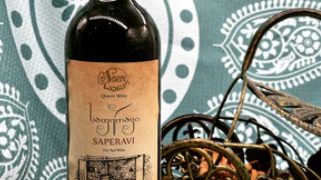When choosing the perfect bottle of wine, there are many factors to consider. From the type of grapes used to the region it was grown in, the options can seem overwhelming. But one aspect that is gaining more attention is the use of preservatives in wine. Preservative-free wine is becoming increasingly popular among wine enthusiasts. However, there are still many misconceptions and myths surrounding this type of wine. Here, we will debunk seven common myths about preservative-free wines and provide you with the truth.
#Myth 1
Preservative-Free Wines Have a Shorter Shelf Life
The belief that wines devoid of preservatives inevitably suffer from reduced longevity is a common misconception. It’s important to understand that the shelf life of preservative-free wines isn’t universally abbreviated; rather, it can vary significantly based on the wine’s production and storage methods. Innovative winemaking techniques have emerged, allowing vintners to craft preservative-free wines that maintain their integrity and quality over time, rivalling their conventionally preserved counterparts. Proper storage is crucial to extending the lifespan of these wines. By adhering to optimal storage conditions, such as maintaining a consistent, cool temperature, avoiding exposure to direct sunlight, and ensuring bottles are stored on their side to keep corks moist, consumers can preserve the freshness and vitality of preservative-free wines for an extended period.
#Myth 2
Preservative-Free Wines Taste Different
The common belief that preservative-free wines inherently offer an off-putting taste is simply not true. While it’s accurate that the taste profiles of preservative-free wines can differ from those with preservatives, this difference doesn’t equate to a decline in quality or enjoyment. The absence of preservatives allows the genuine and unaltered flavours of the grapes to shine through, offering a more authentic wine-drinking experience. It’s essential to approach preservative-free wines with an open mind, ready to explore the unique and diverse flavour landscapes they present. These wines can offer a broader spectrum of tastes, from bold and complex to light and fruity, depending on the grape variety and the winemaking process. Without the influence of preservatives, each sip invites you to a closer communion with the wine’s natural essence and the winemaker’s vision.
#Myth 3
Preservative-Free Wines Are More Expensive
The perception that wines without preservatives invariably come with a higher price tag is a misconception that discourages many potential enthusiasts. While it’s understandable to assume that the meticulous care and organic practices required to produce such wines might elevate their cost, this isn’t always the case. The market for preservative-free, organic wine is diverse, featuring selections that cater to a broad spectrum of financial plans. From everyday drinking wines to special occasion bottles, the range of prices mirrors that of conventional wines, ensuring that enjoying a glass of preservative-free wine doesn’t have to be a luxury.
#Myth 4
Preservative-Free Wines Lack Variety
The notion that preservative-free wines are limited in their variety couldn’t be further from the truth. From robust reds to delicate whites, tangy rosés to effervescent sparkling wines, there’s a preservative-free option to suit every taste and occasion. This wide-ranging assortment reflects the creativity and dedication of winemakers who are committed to natural practices, showcasing their ability to produce high-quality wines across various categories without the need for chemical preservatives. The absence of these additives does not restrict the winemaking process; rather, it opens the door to exploring more authentic and nuanced expressions of the grape’s character.
#Myth 5
Preservative-Free Wines Are Not as Safe
The misconception that preservative-free wines pose a safety risk compared to their conventional counterparts is unfounded. The safety of a wine has more to do with the winemaking process itself than the presence or absence of preservatives. Winemakers dedicated to producing preservative-free wines adhere to strict hygiene and quality control standards throughout the fermentation and bottling processes to ensure their wines are safe for consumption. These natural wines are crafted using organic farming practices, which avoid the use of synthetic pesticides and fertilisers, reducing potential chemical residues in the final product. Furthermore, the natural fermentation process, which relies on the grapes’ indigenous yeasts, has been a traditional method of winemaking for thousands of years and is inherently safe. Consumers can take comfort in knowing that preservative-free wines are subject to the same regulatory standards as conventional wines, requiring them to pass rigorous safety tests before reaching the market.
#Myth 6
Only Small Wineries Make Preservative-Free Wines
A growing number of larger wine producers are entering the preservative-free market, driven by an increasing consumer demand for wines that are made without added chemicals. This shift is not limited by the size of the winery but rather by a commitment to offering consumers a more natural, unadulterated wine experience. The movement towards preservative-free winemaking spans across the wine industry, encompassing a diverse range of producers from boutique vineyards to established, well-known brands. This evolution reflects a significant change in how wine is produced and enjoyed, signalling that preservative-free options are not just a niche category but a growing segment within the wine market. Larger wineries leveraging their resources and distribution networks have the potential to make preservative-free wines more accessible to a wider audience, further democratising the availability of these healthier, more environmentally friendly wine options.
#Myth 7
Preservative-Free Wines Are Hard to Find
Contrary to what many believe, sourcing preservative-free wines has become more straightforward, thanks to their increasing presence both online and in physical retail spaces. This growing ease of access reflects the heightened demand for more natural and organic wine options among consumers. Retailers, from boutique wine shops to larger supermarkets, are expanding their selections to include a wider array of preservative-free choices, catering to the discerning tastes of health-conscious wine enthusiasts. Additionally, the digital marketplace has significantly contributed to the availability of these wines. Online platforms and wineries offer extensive catalogues of preservative-free wines with the convenience of natural wine delivery in Sydney, making it simpler for consumers to explore and enjoy these products from the comfort of their own homes.





















